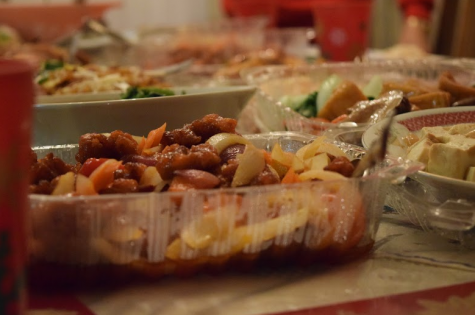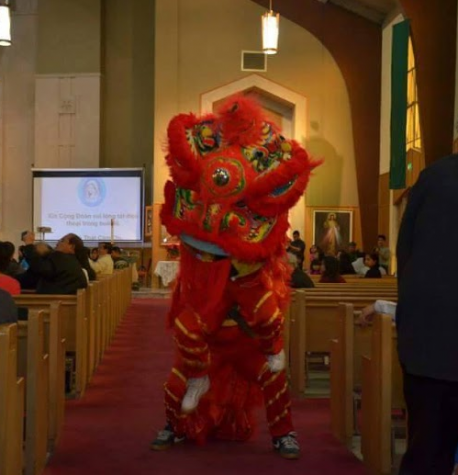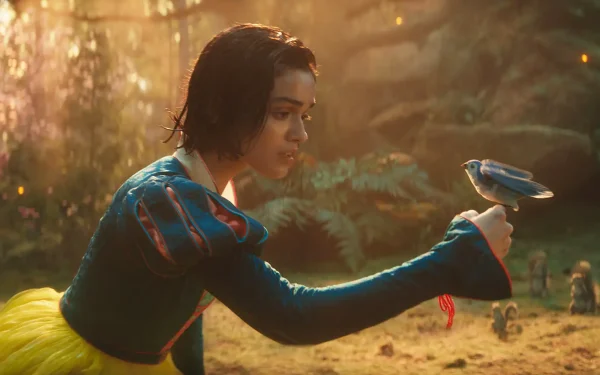Monkeying Around this Lunar New Year
Once the ball dropped and everyone shouted, “Happy New Year!” most people went on with the hustle and bustle. Whether it is attempting to stick to their New Year’s Resolutions, taking down Christmas decorations, or trying to find a “new me” for the “new year,” the hype eventually dies down halfway into the second week of January. However, a number of people look forward to having another new year in late January or early February. Chinese and Vietnamese people celebrate Lunar New Year, or the turn of the Chinese calendar.

The Chinese calendar is a lunisolar calendar, which means the measure of time is based on the phases of the moon. The calendar we are most accustomed to, the Gregorian calendar, is a solar calendar, which means the measure of time is based off the position of the Earth in relation to the Sun. Although most people around the world currently use the Gregorian calendar, the Chinese calendar is still used for establishing certain Chinese holidays and lucky days for special events; some even keep track of their Chinese birthday using this calendar.
You may have heard of the Western Zodiac: based on your birthday, you are assigned one of twelve signs such as Aries, Taurus, Cancer, and Sagittarius. The Chinese believe in a different Zodiac, known as the Chinese Zodiac: based on your birth year, you are assigned one of twelve animals, such as the tiger, ox, dragon, or goat. On February 8th, we will be celebrating the year of the monkey, the ninth animal in the Chinese Zodiac.
The Lunar New Year is not all about the calendar; it is a time to enjoy some good food. Sophomore Debbie Nguyen enjoys a traditional Vietnamese New Year dish with her called “Bánh chưng,” a special cake made from glutinous rice, mung beans, and meat. Benicia Chiang, a senior, anticipates her mother’s roast duck, traditional Asian stir fry, and soups on Lunar New Year. In Chinese culture, a lot of the foods served on New Year have a meaning behind them. For instance, noodles represent longevity, oranges are the centerpieces of tables to bring good luck to the household, and fish is said to bring satisfaction to the oncoming year. My personal Lunar New Year favorite is my grandfather’s sticky rice, filled with water chestnuts, mushrooms, and Chinese sausages.
Just like the Western New Year, family and friends gather for Lunar New Year. Playing traditional Chinese gambling games such as mahjong is a favorite for the elderly and the young. Stephanie Chee, a sophomore, spends Lunar New Year with her family at a temple in Chinatown where her deceased family members’ urns are stored. Rituals such as lighting incense and offering red packets are ways to pay respects to ancestors. There is also a parade in Chinatown that includes lion and dragon dancers, firecrackers, and other traditional Chinese performances.

An anticipated part of Lunar New Year is the lion dancing. Two dancers, one who plays the head and one who plays the tail, work together to portray a lion. The lion can be characterized as strong, graceful, or even silly. The two dancers must communicate while underneath the costume using certain signals to make the lion look like one creature instead of two. Theresa Pham, a senior, is a veteran lion dancer who has danced for six years. She plays the head of the lion since she is very light and can be easily picked up for stunts such as standing on the other person’s thighs. Pham enjoys performing “because you bond with your partner and it’s like being a mascot.” Audience members can “feed” the lions lucky red envelopes or cabbages full of money (yes, the cabbages have money inside) to promote good fortune for the new year.
The lions are not the only ones who get money– children also receive lucky red envelopes, sometimes accompanied with an orange, from elders. These envelopes are usually decorated with golden Chinese characters that say “luck” or “fortune.” Unfortunately for high school students, many elders have started to give us less money because it is almost time for us to start handing out envelopes to the children!
This February, look out for lion dancers, firecrackers, and prosperity this year to come.





